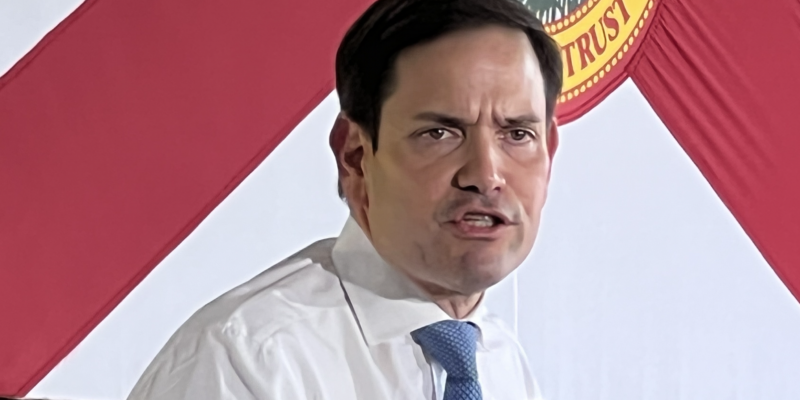U.S. Senator Marco Rubio has cosponsored legislation impeding President Joe Biden from unilaterally ejecting America from the North Atlantic Treaty Organization (NATO).
Senate Joint Resolution 37 would require the “advice and consent of the Senate or an Act of Congress to suspend, terminate, or withdraw the United States” from NATO.
Rubio exclaimed he is “proud to reintroduce this bipartisan bill with @timkaine to ensure that no US president can make the decision to leave NATO without Congressional approval.”
The resolution would freeze any funds needed to complete the president’s attempted estrangement from NATO and authorize the Congressional Legal Counsel to legally challenge the move.
Past Presidents, such as Donald Trump, had previously harnessed their ability to unilaterally abandon the treaty as leverage against NATO members shortchanging the alliance. Trump reportedly repeatedly floated leaving NATO to spur its members into fulfilling their financial and military support commitments.
NATO remains a vital alliance that promotes democratic values and protects nation’s sovereignty from foreign adversaries.
Proud to reintroduce this bipartisan bill with @timkaine to ensure that no US president can make the decision to leave NATO without Congressional approval. pic.twitter.com/Nsyp3F0X7e
— Senator Marco Rubio (@SenMarcoRubio) July 12, 2023
Other politicians, mainly conservatives such as Florida Representative Mike Waltz (R), have mirrored Trump’s drive for NATO allies’ accountability.
Rep. Waltz claimed NATO allies are in arrears with financial support commitments, as “only 9 out of 32 members are contributing 2% of their GDP.”
Conversely, Rubio justified the present resolution, claiming “NATO remains a vital alliance that promotes democratic values and protects nation’s sovereignty from foreign adversaries.”
“Any decision to leave the alliance should be rigorously debated and considered by the U.S. Congress with the input of the American people,” stated Rubio.
Already having individually or jointly proposed dozens of laws, Rubio’s legislative agenda is firing on all pistons this term. Another measure Rubio has contributed to is the Beautifying Federal Civil Architecture Act.
The Act would “make classical and traditional architecture the preferred style of federal buildings,” explained Rubio. If passed, all new federal buildings and eligible existing ones would be built or redesigned, respectively, according to Greek and Roman architectural styles.
Additionally, federal building planners would also be directed to draw from select Renaissance, Enlightenment, 19th, and 20th century architects expanding on Greek and Roman tradition.












